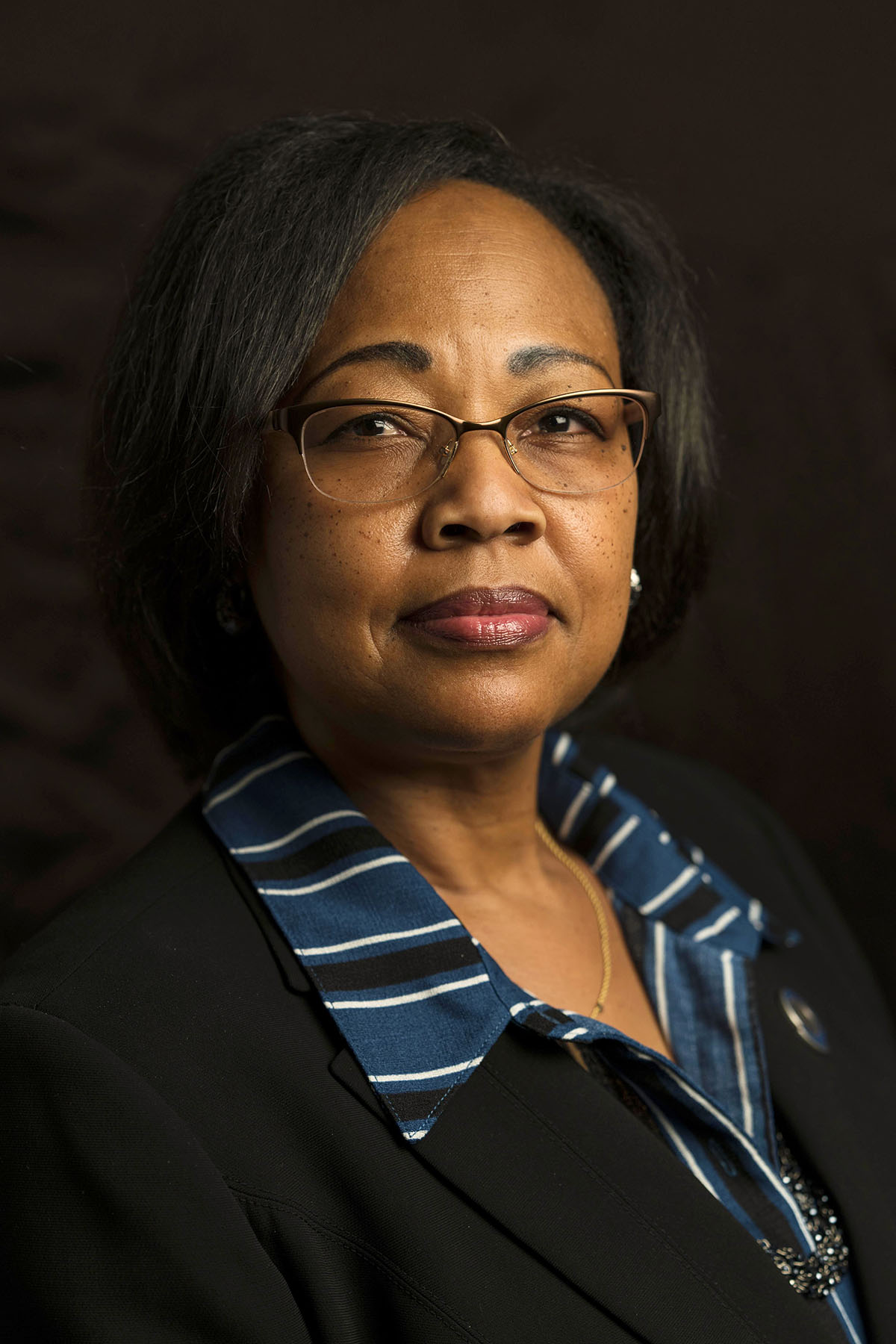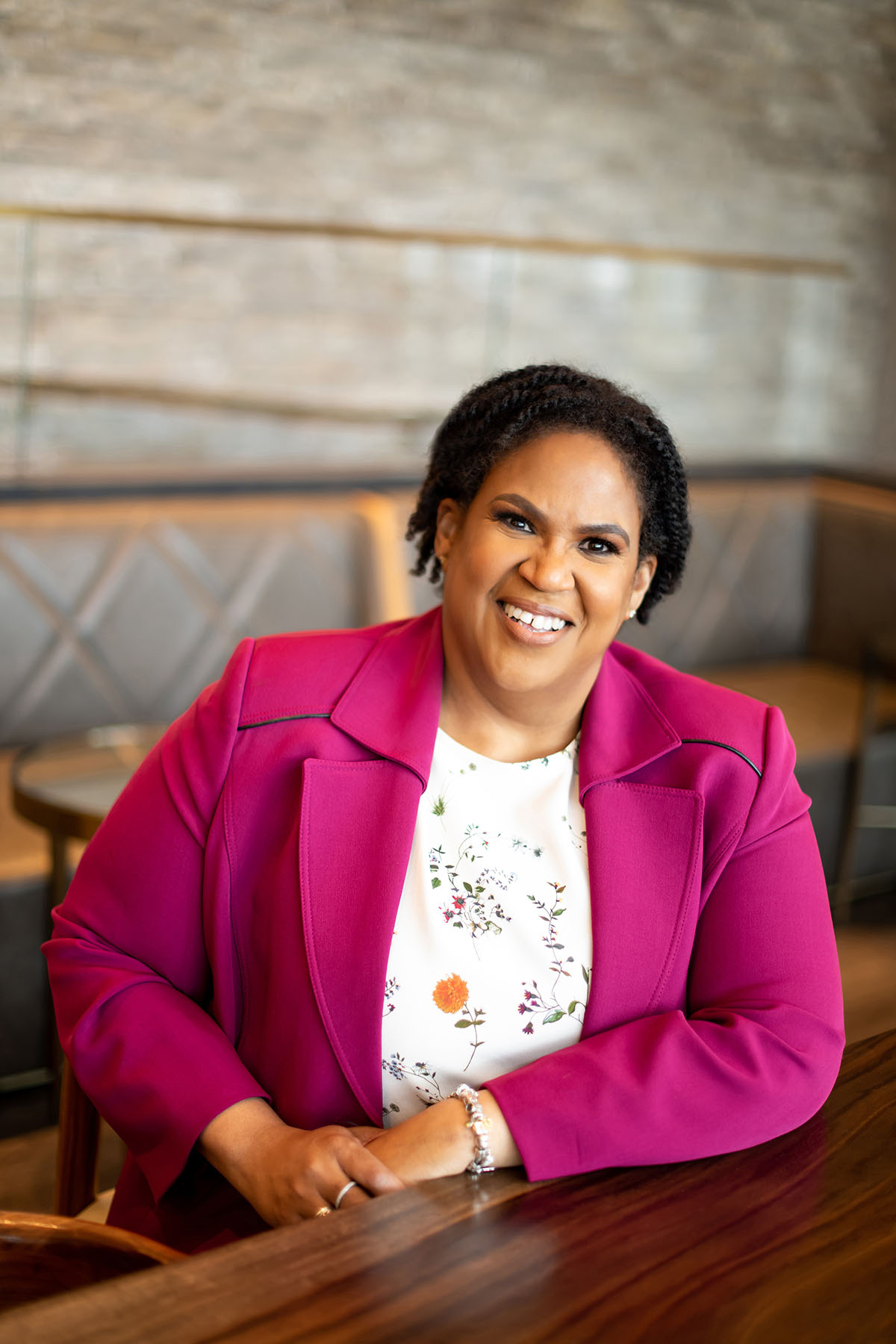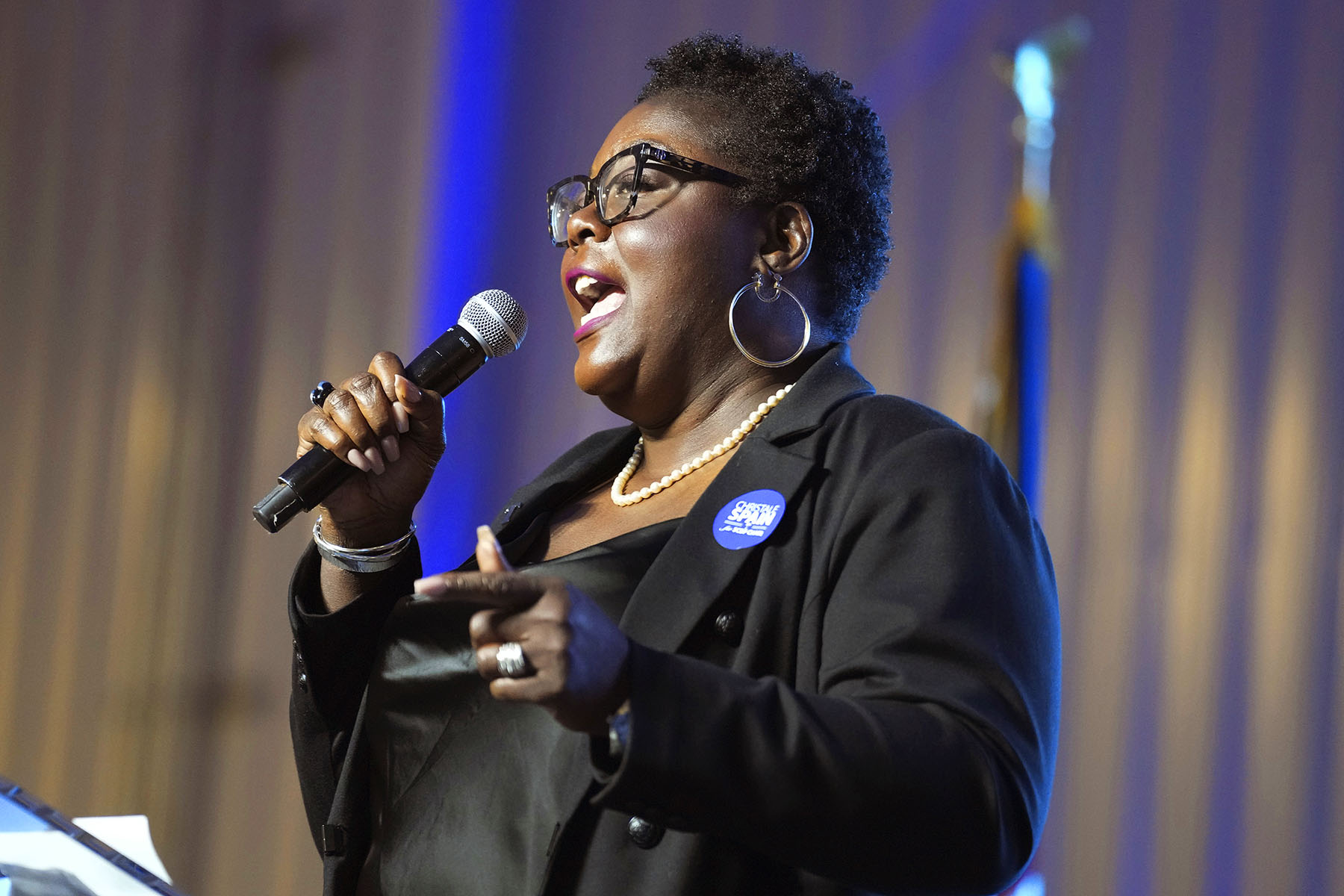President Joe Biden faces no serious threat to the Democratic nomination as he seeks a second term. But the Democratic presidential primaries, beginning with South Carolina on Saturday, offer the first real window into his strength with the Black voters who make up his key voting base.
An endorsement from influential Rep. Jim Clyburn in addition to support from South Carolina’s Black voters revived Biden’s 2020 presidential campaign. For the next cycle, Biden and the Democratic National Committee rearranged the Democratic primary calendar to reflect the diversity of the Democratic electorate, putting South Carolina first, followed by Nevada on Tuesday and Michigan on February 27.
And for the first time, Black women are leading all three of these Democratic state parties as polls offer warning signs of Biden’s standing among Black voters. Christale Spain in South Carolina, Daniele Monroe-Moreno in Nevada and Lavora Barnes in Michigan are all the first Black women to be party chairs in their states — raising money and serving as the Democrats’ public face.
“Even before I got involved in the party, Black women have really been showing up for Democratic candidates,” said Spain, chair of the South Carolina Democratic Party. “We show up and volunteer, we show up and vote, really, as a big voting bloc.”
In interviews with The 19th, all three said they were focused on communicating Biden’s accomplishments and unifying the party in support of the president and other Democratic candidates, in addition to leading year-round organizing and voter engagement on the ground.
“I’m a mom and a grandma, and I take my state party position as being like the mom of the Democratic Party for the state,” said Monroe-Moreno, chair of the Nevada Democratic Party and speaker pro tempore of the Nevada Assembly.
“It’s about unifying this party to get behind the people that we have currently in office to make sure we get them reelected. And it’s also seeking and mentoring and training young Democrats to come and take those seats behind us. I’m the first, I don’t want to be the last,” she said.
For years, Democrats have referred to Black women as the “backbone” of the party — a designation celebrating their decades of party support and their community leadership fighting for equitable laws, registering voters or providing civic education.
Spain, who became the first Black woman to chair the South Carolina Democratic Party in April, said it’s “extremely important” for Black women who have long been “showing up” as voters and organizers to be in positions of leadership.
“It’s just very important that we make our voices heard, because if you’re not at the table, you’re on the menu,” Spain said. “And so the way I see it is keeping Black folks off the menu.”
Even as their electoral and organizing contributions have been lauded, Black women have often felt overlooked when it comes to policymaking and support for their political campaigns as more Black women seek public office.
“Black women are resilient. We just have the ingenuity to make things happen and to make it look easy,” Nadia Brown, a professor of government and director of women’s and gender studies at Georgetown University, told The 19th last year. “Black women can make $1 out of 15 cents, and the Democratic Party knows that. So there is little incentive for the party to put the investment in when they know that Black women will still turn out.”
When entering the White House, Biden appeared committed to help shift that dynamic by appointing more Black women to prominent positions of power.
He selected Vice President Kamala Harris, the first woman and Black and Asian-American person to serve in the position, as his running mate. He also appointed Justice Ketanji Brown Jackson as the first Black woman to serve on the U.S. Supreme Court. In total he has appointed 33 Black women to the federal bench.
Broader representation for Black women has spread to Democratic Party leadership as well. They now serve as state chairs in seven states, including three key battlegrounds: Nevada, Michigan and Georgia. Black women are vice chairs in seven other states.
Monroe-Moreno took the helm for the Nevada party in March. In addition to being the first Black woman to lead the state party, she was also the first Black woman to chair the Ways and Means Committee in the state assembly. Breaking through these barriers is significant, not only as a Black woman, but as someone who spent her early childhood in foster care, she said.

“Statistics would tell you that as a foster kid in the foster care system, you probably wouldn’t end up in an elected position, much less running the state party of any state,” Monroe-Moreno said. “I’m elected and serve in the legislature to a community that is not a majority-minority community, but they felt that I was the best person to represent them. So it means a lot to be here.”
But diverse representation in politics will only go so far for voters; they want to see progress on the issues they care about.
Congress has passed major Biden-backed investments in infrastructure, domestic manufacturing and clean energy, legislation the administration touts to voters as major drivers of economic growth and new job creation. Since Biden and Harris entered office, 14.8 million jobs have been created, according to the U.S. Department of Labor. Barnes said in Michigan she and her team have noted the decrease in prescription drug prices and the administration’s support for union workers.
Congress also passed bipartisan legislation on gun safety, one major priority for Black voters, and mental health in the wake of multiple mass shootings in 2022.
But Washington didn’t deliver on other policies important to many Black voters. Congress did not pass legislation bolstering voting rights — a top priority for the Biden administration — or on police reform while Democrats controlled both chambers.
A segment of the Black community, particularly younger progressives, are pressing the Biden administration to call for a cease fire in the ongoing crisis in Gaza and Israel. Barnes said in Michigan, which has a sizable Arab-American population, the state party is actively having conversations with community members about the issue.
Biden still enjoys the highest approval ratings of any racial group from Black voters. But his average approval numbers with Black Americans have fallen by over 20 points from 86 percent when he and Harris took office to 63 percent in October 2023, according to a FiveThirtyEight analysis.
Brencia Berry, the Democratic National Committee’s national political director, said in a statement that the party “hasn’t let up” on mobilizing the voters of color who were “pivotal” to Biden’s victory in 2020.
“We aren’t taking any vote for granted, and we’re showing up in Black communities to earn their support once again,” she said.
Even with improved representation over the years, Black women leaders continue to raise concerns about the party establishment’s priorities when it comes to supporting Black women candidates in high-profile races and the Biden-Harris campaign’s outreach to Black women voters.
In thinking about their strategy for the 2024 elections, the Black women chairs in South Carolina, Nevada and Michigan said it is important to do away with old approaches to voter engagement that left communities feeling taken advantage of.

All of the chairs said they were focused on investing in year-round organizing, creating an ongoing dialogue between the party and voters in their states on key issues.
Barnes, who has worked for multiple campaigns, including as state director for then-President Barack Obama’s 2012 reelection campaign, said that while doing previous campaign work she heard prospective voters express that no party representative had reached out to them before.
“I recognize the importance of having conversations year-round, so that your first conversation with a voter isn’t asking for a vote,” Barnes said. “That was our goal, to build an organization, what we call Project 83” — named after Michigan’s 83 counties — “that lets folks have an ongoing relationship with their party.”
Spain doesn’t see an enthusiasm gap but an “information gap” among voters about the economic policies passed under Biden. She specifically wants to reach rural voters, who often feel “unseen and unheard.”
Spain said that the Biden campaign should tout not only the new infrastructure programs that have funded road repairs in her state but also the administration’s student debt forgiveness efforts and investments in historically Black colleges and universities — South Carolina is home to eight.
“I just think that we have to make sure that we are doing a better job of getting outside of the bubble, and making sure the voters know what is happening,” she said.





